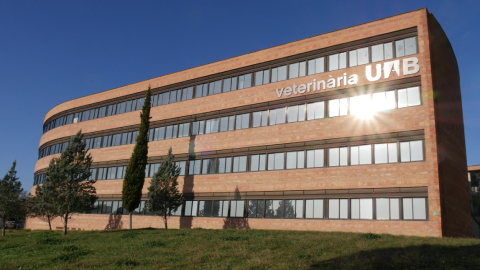The UAB ranks among the top 100 universities in seven academic subjects

The fourth edition of the Global Ranking of Academic Subjects, which classifies the top universities in 54 different academic subjects, ranks the UAB among the top 100 universities worldwide in 7 academic subjects: Veterinary Sciences, Geography, Agricultural Sciences, Biotechnology, Ecology, Economics and Oceanography.
02/06/2021
The Academic Ranking of World Universities (ARWU), the Shanghai ranking, presents the fourth edition of its Global Ranking of Academic Subjects. This ranking classifies the top universities in 54 academic subjects, grouped into five areas of knowledge (Natural Sciences, Life Sciences, Social Sciences, Engineering and Medicine), following the same classification of disciplines as in the Web of Science.
The UAB's results in this fourth edition places it amongst the top 100 universities in seven different subjects: Veterinary Sciences (7th, down two places), Geography (36th, down six places), Agricultural Sceiences (within the 51-75 range), Biotechnology (within the 76-100 range), Ecology (76-100 range), Economics (76-100 range) and Oceanography (76-100 range). Ecology and Economics are two subjects which once again are found amongst the top 100. In addition, the UAB is among the top 200 universities in a total of 23 of the 54 subjects analysed (one more than in last year's edition).
In order to form part of the ranking, the universities must have published a specific number of articles between 2015 and 2019, which varies depending on the subject, from 330 in Physics or Medicine, to 25 in Tourism or Public Administration.
Five indicators of different relevance depending on academic area and subject were used. They included number of articles published by the institution in a specific matter; normalised citations per article, obtained from the Clarivate Analytics' InCites database; percentage of articles produced with international collaboration; number of publications in prestigious journals; and the awards given to academics of the institution.
The ranking's bibliometric indicators are created using the data obtained from the bibliographic databases Web of Science (Clarivate Analytics) and the awards indicator created based on the information contained in institutional websites of the entities awarding the mentions.
For more information please visit:
Link to the ARWU ranking website
This information is related to the following SDG
Quality education